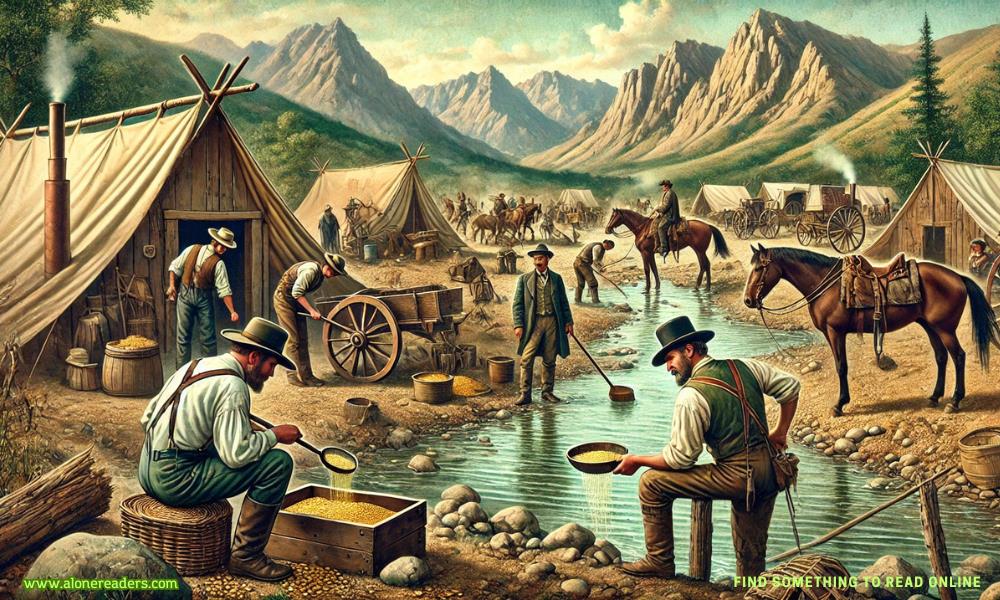Page 9 of The Prodigal Son
Zipping out of the lot, I make my way to the location on my car’s nav system. It’s in an older part of town, and there’s not a spot to park in at first, so I circle the block a couple of times until I find something.
It’s a couple minutes past twelve thirty when I pull open the door to Sal’s Diner. The bell above me chimes as I enter, drawing the attention of the people lingering around, waiting for a table to open up.
I see a hand waving from a small booth near the window, so I squeeze through the crowd and make my way over.
Adam Goode stands up to shake my hand as I approach him.
“Thanks for meeting me,” I say as I take a seat across from him.
“Of course. I watched your sermon this morning. It was good.”
I smirk as a waitress comes over and fills up his coffee cup. When I turn mine over, she fills it as well.
“I’ll give you two a couple minutes to look at the menu,” she says before walking away with the coffeepot.
“Thanks,” I mumble to her as I stir cream and sugar into my mug.
Adam doesn’t say a word at first, and judging by the tepid, unwelcoming expression on his face, he’s skeptical of me and probably doesn’t want to be here. I don’t blame him.
To him, I’m on the enemy’s side. I’m filling the shoes he probably once thought he’d fill himself. The Goode family drama has been the talk of the town for nearly two years now, and Adam wanted it that way. He made a spectacle of himself the year his father was arrested.
I decide to start with small talk in hopes that I can get him to relax and trust me. I want him to see that I’m a nice guy and nothing like his father.
“Interesting location for a meeting. Do you come here often?” I ask.
“I used to write my sermons here,” he replies as he glances out the window. “Met my wife here.”
He doesn’t look like the same man I knew when he was in the spotlight. He looks more comfortable, laid-back. Softer around the face with a bushier beard and crow’s-feet blossoming around his eyes. All the signs of a comfortable, happy man.
“You don’t preach in your church on Sundays?” I ask as I lift my coffee to my lips.
“No,” he replies, sitting back. “I’ll never preach again. And it’s not my church. We use it to feed the homeless and offer support to the community.”
“Noble,” I reply with sincerity. “So, no congregation.”
“We have a congregation,” he replies smartly, and I worry that he’s taking my tone as sarcasm. “It’s just a lot smaller than yours.”
“Equally virtuous.”
“Don’t patronize me, Mr. Miles.”
I put up my hands in surrender. “I promise you, I’m not.”
“Then what can I help you with?”
He wants to get straight to business, which means my attempt at small talk has failed. That’s fine. I can still make my case.
“I used to preach at a much smaller church in Georgetown when I had the opportunity to preach at Redemption Point. When I arrived, the congregation was weak, jilted, wary. But a lot of them stayed because that church was their home.”
“You’ve built it up nicely, I see,” he replies flatly. “So, what do you need from me?”
“I’d like to invite you to join us.”
His eyes narrow at me from across the table. “Join you where?”
“To our service at Redemption Point. Join me at the pulpit. I’d like to really show the people our solidarity.”
“Mr. Miles, we do not have solidarity. I won’t step foot in that church again. Do you even realize what you’re asking of us? My father built that church. The man who has tormented our family. Nearly killed my wife and kidnapped my niece. He broke my mother’s heart and…”
- The Sheikh and the Single Mom by Holly Rayner
- Extra Tight by A.R. Taboo
- Dominance by Lisa Cullen
- Buried by T.O. Smith
- Savage Claim by Bella Ash
- Savage Proposal by Bella Ash
- Inappropriately Matched by Chloe Kent
- Wilde Secrets by Melanie Hepburn
- The Devil's Torment by Tracie Delaney
- Ms. Mosley by Talena Tillman
- Stricken by N.N. Britt
- Unspoken by N.N. Britt
- Isaac by N.N. Britt
- Past Lovers by Kelex
- Bitten by Kelex
- Best Friends by Kelex







